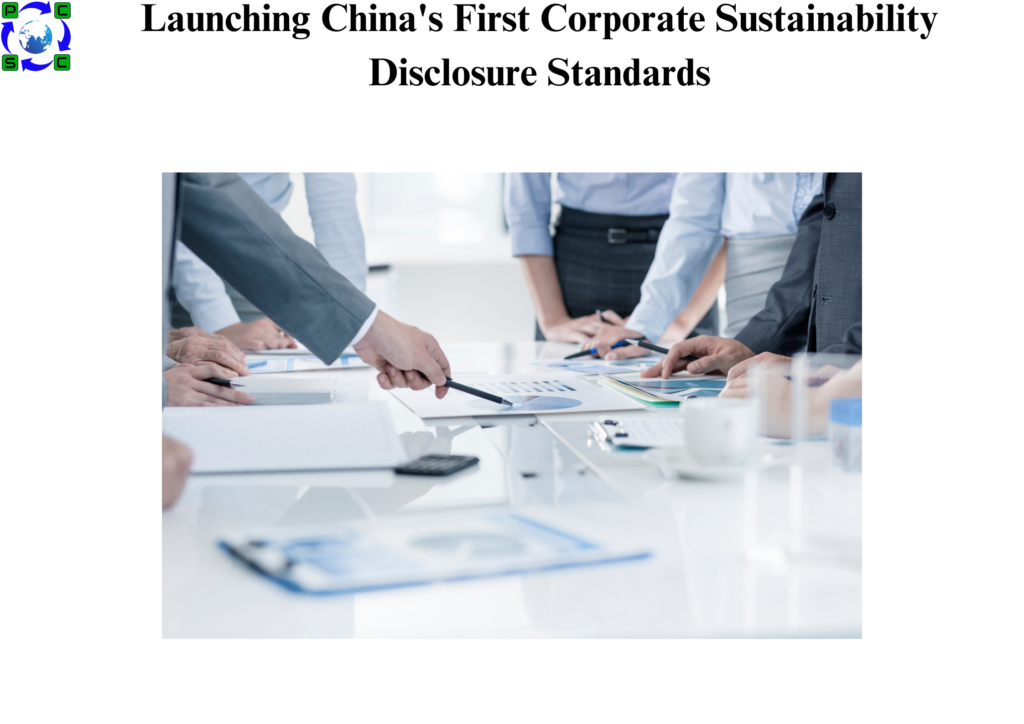 Introduction of Basic Standards:
Introduction of Basic Standards:
China has unveiled its Basic Standards for corporate sustainability disclosures, designed to align with global ESG frameworks. These standards aim for full implementation by 2030.
Voluntary Phase:
Before mandatory compliance begins, enterprises can voluntarily adopt the standards, offering businesses the flexibility to prepare and adapt.
Investor-Centric Focus:
The finalized standards emphasize transparency for investors and creditors, enhancing data accuracy and aligning with international best practices.
China’s commitment to corporate sustainability reporting has gained significant momentum. On December 17, 2024, the Ministry of Finance (MOF), in collaboration with nine other departments, officially released the Basic Standards, laying the foundation for standardized ESG disclosures across the nation.
Development and Implementation Timeline:
The process began with a draft released in May 2024, followed by public consultation. Starting in 2026, ESG reporting will become mandatory for large listed companies, with full adoption of the framework expected by 2030. This approach strikes a balance between integrating global ESG practices and addressing local priorities like climate change and rural development.
Structure of the Basic Standards Framework:
The framework is organized into three core components:
- Basic Standards: Define overarching ESG disclosure objectives, principles, and consistency requirements.
- Specific Standards: Cover key ESG topics, including climate change and corporate governance.
- Application Guidelines: Provide practical tools, such as case studies, to assist businesses in meeting reporting requirements effectively.
Key sections of the framework include objectives focused on materiality and reliability, information quality emphasizing accuracy and timeliness, and phased compliance measures to ease the transition for businesses.
Key Updates in Final Standards:
The final standards place greater emphasis on investor and creditor transparency, introducing market-driven accountability. They offer compliance flexibility, enabling businesses—especially smaller firms—to customize their reporting methods based on available resources. ESG reporting for large companies will become mandatory starting in 2026.
Navigating ESG Reporting in China:
Chinese companies are increasingly recognizing the importance of ESG practices in attracting global investment and driving sustainable growth. However, challenges remain, including ensuring data accuracy and balancing local priorities with global ESG standards.
China’s initiatives, including international collaborations like the Belt and Road Initiative, reflect its dedication to transparency, corporate responsibility, and global competitiveness in sustainability reporting. The new framework marks a significant milestone in advancing corporate sustainability practices nationwide.
Stay ahead in the world of sustainability compliance with Global PCCS, where expert insights meet the latest regulations. Unlock a future where compliance drives sustainability and your business thrives in a greener, regulated landscape.








 Authorised IMDS & CDX Training & Consulting partner for
Authorised IMDS & CDX Training & Consulting partner for






